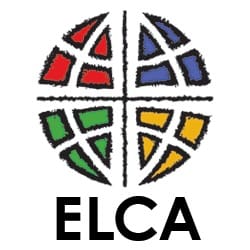|
By Rebecca Walton
Franciscan Richard Rohr, through his Center for Action and Contemplation, sends out daily Christian meditations which explore a new theme each year. This year’s theme is Old and New. He explains that God’s truths are true for all time but that those truths reveal themselves in different ways and words and cultures through the ages. The theme of Old and New is drawn from Matthew 13:52, in which Jesus says that scholars of the [Jewish] law who become disciples of the kingdom of heaven [i.e., Christians] draw from their storehouse treasures both old and new. I read a few Bible commentaries about Matthew 13:52 and see some insights for our congregation in this coming year of transition. The chapter in which this verse appears is a collection of parables (or teachings that convey a message indirectly through story). Story is central to Jesus’s teaching; approximately a third of Jesus’s teachings in the Gospels take the form of parables. I think this is not only because parables are an effective way to help people learn (by connecting new knowledge with old knowledge) but also because stories are central to the human experience. Many of us have treasured family stories that we’ve told and heard many times over the years: funny things kids said when they were little, impressive accomplishments, tough times endured and overcome. These storytellings are not just entertaining. Storytelling strengthens our family connections and values, reminding us of who we are, where we came from, what’s important to us. On Jan. 13, Prince of Peace will have a Telling our Story potluck in which we’ll all work together to craft a timeline that tells the story of our church family. Knowing our story-- whom we have been, our major events and milestones, our treasured moments as well as our rough patches and challenges endured --is an important step in pursuing the hiring of a new full-time pastor. To get a good sense of whom we seek (or, more accurately perhaps, whom God may have for us), we need to know ourselves. (This makes me think of Lisa Green’s Council Corner article about our church “dating profile.” If you didn’t see it, check out July 2018 newsletter in the archives.) Returning to Matthew 13:52, knowing whom we’ve been is important for informing whom we become. Old knowledge informs new. This is one interpretation of Matthew 13:52: that knowledge of the Jewish law can be richly informative and relevant for informing knowledge of the new kingdom that Jesus establishes in Christianity. Another interpretation of this verse is that when we become Christians, we bring with us gifts, qualities, and backgrounds that we should not throw out or ignore but rather intentionally devote in service to God. These old treasures are valuable. And as we mature in our faith, God will cultivate in us new qualities and characteristics and provide new experiences that serve as new treasures which are equally valuable. I’m looking forward to the Knowing Our Story potluck and the story timeline we’ll produce together. As a relatively new member of this congregation, I’ll be enriched by learning of the many old treasures in our communal storehouse. And I am eager to see what new treasures God has planned for us in the coming year.
0 Comments
|
AuthorsThis blog is run by the council members of Prince of Peace Lutheran Church in Logan, UT. For more information, check out our church's website at princeopeace.org. Archives
July 2020
|

